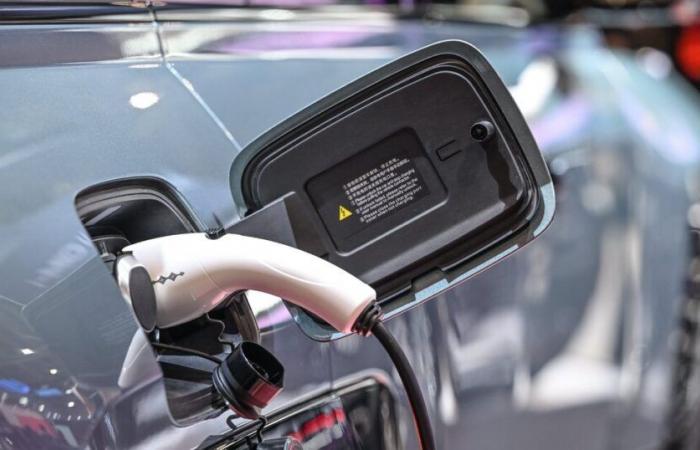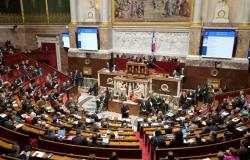Photo credit: BELPRESS/MAXPPP
It is no longer a slight obstacle to overcome, it is a mountain. Never since the Union’s decision to ban the sale of new thermal cars on January 1, 2035 has this measure aroused so much reluctance, about-faces, pleas, reversals of opinion and international circumstances against them.
The postponement of the deadline is looming and some environmentalists are already talking about powerful lobbying from the automobile industry which would squat the Commission and Parliament buildings in Brussels all year round. But it is only the fantasy of an occult cabinet supposed to guide the hand of politics.
Un lobbying inutile
ACEA, the looby in question, supposed to bring together European manufacturers, is divided like never before and if some of its members no longer agree with each other, others, like Stellantis, have completely slammed the door. The reality is simpler than the fantasy of the conspiracy: the brands of the old continent no longer even need to beg since international events and the recession looming in Europe mean that the leaders of the 27 are pleading for the manufacturers.
Latest episode to date: the CAFE standards and the big fines which must fall on the brands which do not respect the 81g of average emissions from next year and which, too, are in trouble. The scene takes place on the sidelines of the recent Paris Motor Show. On stage, in front of an audience of automotive decision-makers, the Minister of the Economy, Antoine Armand expresses his love for cars and his wish to help the sector.
Except that its coffers are empty. So, he gave the industry a cheap gift and promised to go and plead his case in Brussels, to avoid fines next year, since it was counting on electric sales to compensate for thermal ones. Except that the first ones sell poorly, hence the millions in foreseeable fines. And last week, through its minister, the Barnier government effectively and officially asked the EU to suspend these standards
How could this episode break down the dikes and the 2025 deadline? According to Patrice Pelata, former Renault No. 2 interviewed by The Echoesthis blow of the penknife will be followed by others. “ If manufacturers do not pass 2025, they will not make it in 2030 and even less in 2035. Adjusting the 2025 deadline would de facto amount to authorizing the sector not to follow the plan set by Europe. “.
And we feel the idea emerging, in Paris as in Berlin, of an ecological transition without damage. “We want to be green, but not to the detriment of the economy “. This now seems to be the credo of the two automotive leaders of Europe, France and Germany. Other countries have their opinions, but the Commission surprisingly tends to listen to them less attentively.
The Franco-German understanding therefore seems to be re-established to fight against electric cars. And for all the stars to align, all it takes is for public opinion to rally its leaders in this area. This is largely done. Through the media, which is increasing electro-bashing, on TF1, as on M6, which fortunately caught up after making a shaky comparison between a Peugeot e-208 versus its hybrid sister.
The press itself, specialized or not, is also guilty of electro-reticence when it relays studies which explain that electric cars pollute as much as thermal cars. Studies which, for some of them, simply forget the share of emissions emitted while driving, obviously zero for electric cars.
Just as other studies forget, by explaining that the price of an electric one is 30% more expensive than a thermal one, that its cost of use is 60% lower, since 90% of recharges are done at home. and maintenance costs are reduced.
We can add to this cocktail of amnesia the famous wattage cars which catch fire and which the media or social networks make buzzer. They forget in passing the thermals which burn, and the fact that the drivers of the latter are sitting on tens of liters of highly flammable fuel.
Electricity catches fire and pollutes more than thermal?
Willingness to harm? Reflex of a press incapable of changing its software that has been stuffed with good old oil for ages? Still, the effect of this bad buzz largely contributed to forming an unfavorable opinion. If we add to this explosive cocktail the (real) difficulties of the automobile industry at the moment, which is really linked to the electric car, the latter has unleaded problems in its wings. And its bond maturity of 2035 risks being postponed, through the review clause set in 2026, but which could well be exercised from 2025 at the request of several countries.
So, what could possibly save the electricity soldier if the public authorities and equally public opinion are against him? What is stopping the 2035 deadline from being postponed first to 2040, then until indefinitely? The economy perhaps, the one that weighs down manufacturers today, but which could well save them tomorrow. Because they have invested hundreds of billions in this transition and losing them would mean losing themselves.






